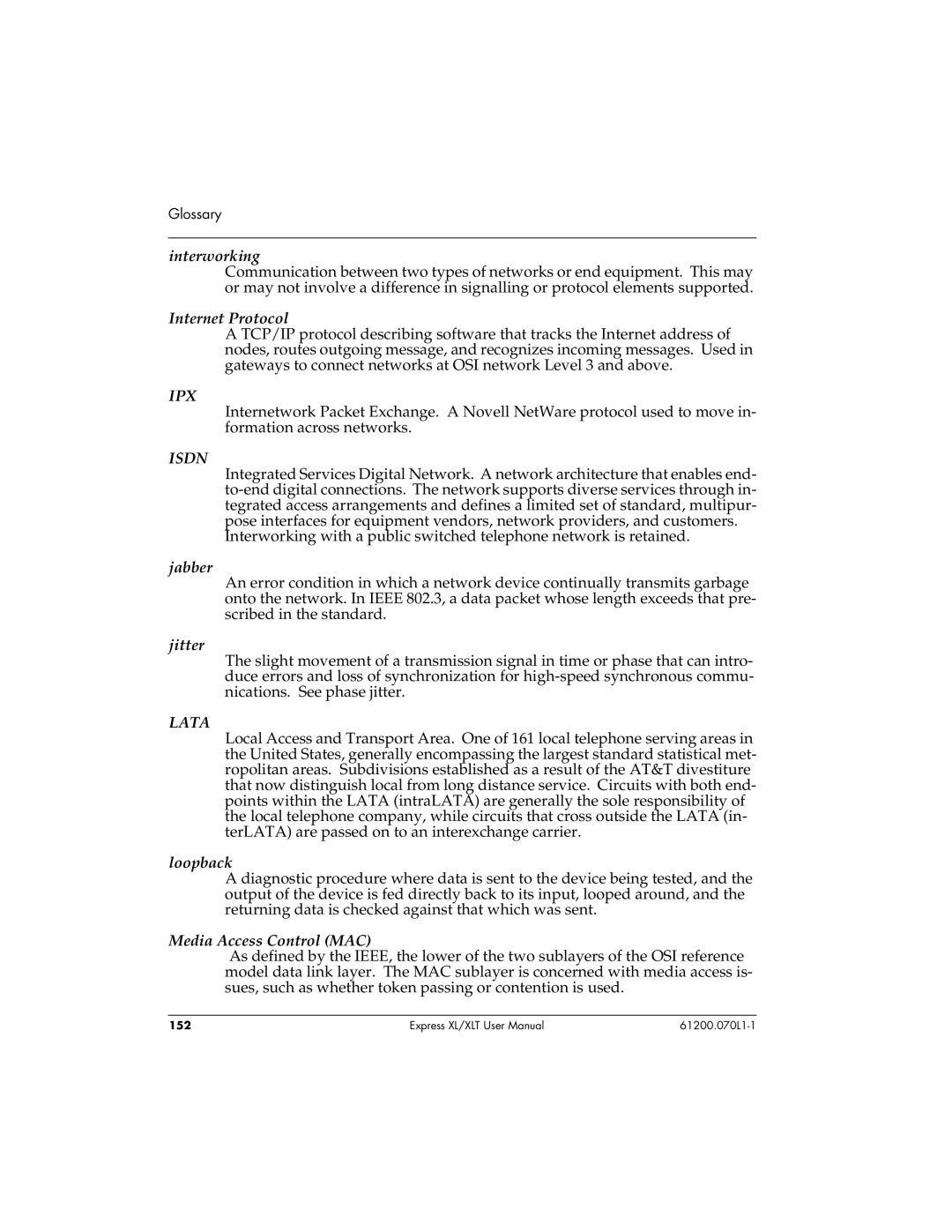
Glossary
interworking
Communication between two types of networks or end equipment. This may or may not involve a difference in signalling or protocol elements supported.
Internet Protocol
A TCP/IP protocol describing software that tracks the Internet address of nodes, routes outgoing message, and recognizes incoming messages. Used in gateways to connect networks at OSI network Level 3 and above.
IPX
Internetwork Packet Exchange. A Novell NetWare protocol used to move in- formation across networks.
ISDN
Integrated Services Digital Network. A network architecture that enables end-
Interworking with a public switched telephone network is retained.
jabber
An error condition in which a network device continually transmits garbage onto the network. In IEEE 802.3, a data packet whose length exceeds that pre- scribed in the standard.
jitter
The slight movement of a transmission signal in time or phase that can intro- duce errors and loss of synchronization for
LATA
Local Access and Transport Area. One of 161 local telephone serving areas in the United States, generally encompassing the largest standard statistical met- ropolitan areas. Subdivisions established as a result of the AT&T divestiture that now distinguish local from long distance service. Circuits with both end- points within the LATA (intraLATA) are generally the sole responsibility of the local telephone company, while circuits that cross outside the LATA (in- terLATA) are passed on to an interexchange carrier.
loopback
A diagnostic procedure where data is sent to the device being tested, and the output of the device is fed directly back to its input, looped around, and the returning data is checked against that which was sent.
Media Access Control (MAC)
As defined by the IEEE, the lower of the two sublayers of the OSI reference model data link layer. The MAC sublayer is concerned with media access is- sues, such as whether token passing or contention is used.
152 | Express XL/XLT User Manual |
